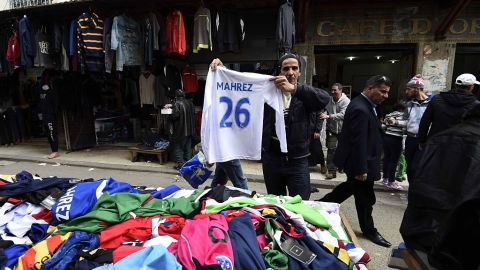Too Much of a Good Thing? Why African Countries Want to Ban Donated Clothes

Nearly all of us have donated our old clothes before. Perhaps to a local consignment shop, perhaps to a larger organization that will send them overseas. Perhaps it was just to clean the closet, perhaps it was to help after a disaster. It seems like a win-win-win. I clear out my closet and feel good about myself, the charity or store has a new item, and somebody will get a decent piece of clothing for a low price, if any.
However, the effects of your donation might be negative, as several African nations are currently arguing.
The countries of Rwanda, Kenya, Uganda, Burundi, Tanzania, and South Sudan are taking steps to ban the import of second hand clothes by 2019, and have begun to implement import tariffs already. They are not alone in this action, South Africa banned such imports for years, and used clothes still cannot be imported into the Philippines.
But why?
While arguments that secondhand clothes can be unsanitary are relatively unfounded, the primary argument is that the low cost of imported hand-me-down clothes is preventing the production of local textiles. This is to the detriment of the economy of both the communities involved and the region as a whole. The goal of the ban, say the promoters, is to promote the purchase of locally produced textiles. Some have also made it a moral issue; asking how a nation can have dignity while wearing the rejected clothing of another.
There is, of course, a large body of opposition. Opponents include The Secondary Materials and Recycled Textiles Association (SMART), who argue that the decision by the East African community, the larger economic organization that agreed to the ban, would be an undue hardship on American goods. Their objection is serious, and could lead to an end to trade benefits for the African nations.
On an larger economic note, there is some objection to the idea that an outright ban on imported second hand clothes would have much effect in creating a demand for new domestic goods. As always, the black market is at the ready to fill any gaps.
What does this mean for my box of charity clothes?
Well, nothing immediately, as plenty of people will still take it. However, they don’t always want or need that box anyway. As mentioned in this Big Think interview, Juanita Riling points out that most charities find donations of clothes to be a burden after disasters. What they really need after a disaster is cash, that they may buy medicine and emergency rations.
Likewise, there are still many countries that will take your items. While the economic and moral merits of donating the clothes can be debated. There is somebody somewhere who would benefit from getting your old shirts. The question of if they need all the shirts celebrating the losers of the Super Bowl is another question.
Is a new trade war about to erupt over your donated clothing? Probably not. However, the whole business does raise questions about what is the best way to give. Can the comfortable always know what the poor need? How do you stop too much of a good thing? Does the charity of the West prevent the progress of the people they are trying to help? In any case, everyone should consider what effect their donations will really have on the people they want to help before doing so.





